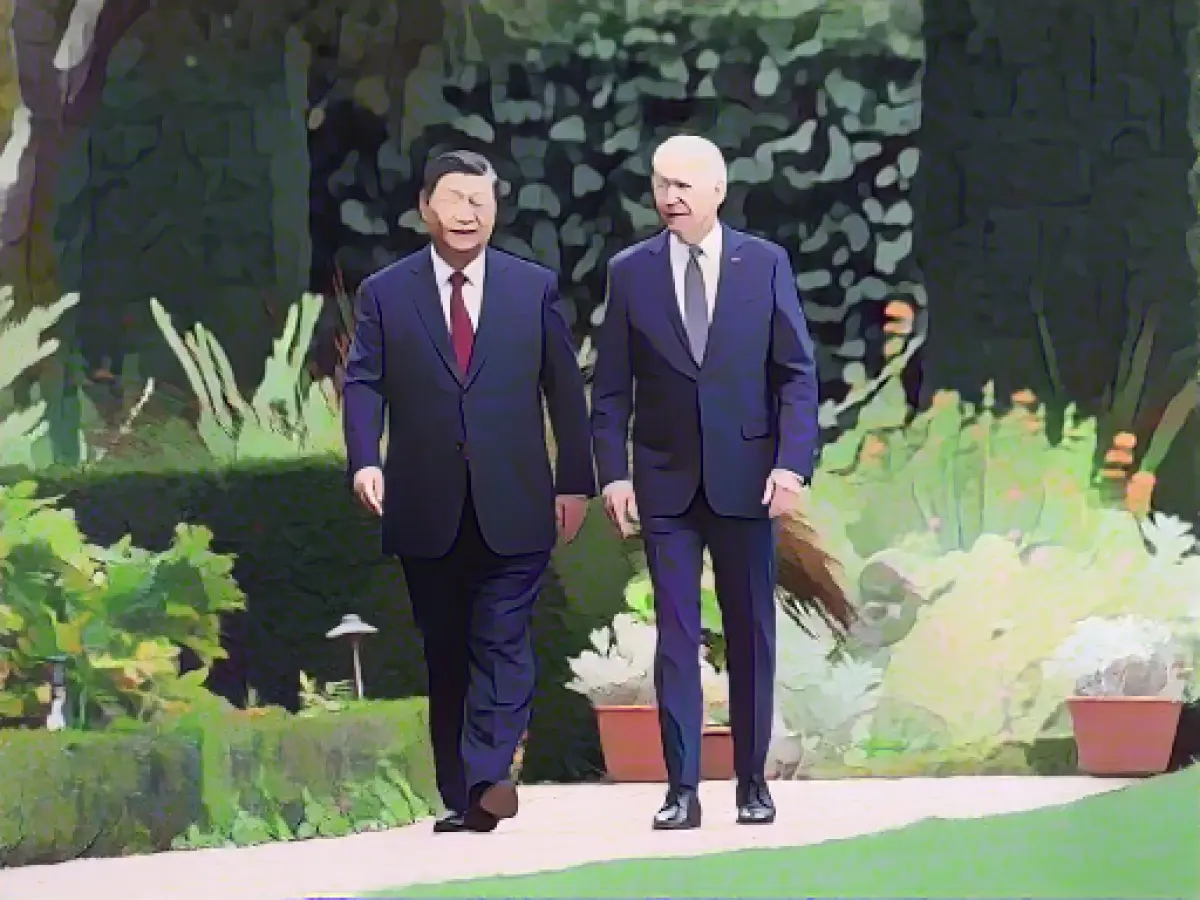Biden's chat with Xi: US and China mend military ties
After a long, awkward silence, Joe Biden and Xi Jingping agreed to revive talks between the two countries' military leaders. This news came straight from Biden after a summit in Woodside, California. Biden emphasized the importance of this move, given the potential for accidents or misjudgments in their absence.
According to the White House press briefing, Defense Secretary Lloyd Austin is scheduled to meet his Chinese counterpart, followed by strategic talks between top military brass. Even the commander of the Pacific Air Forces is expected to join the conversation, with ship commanders exchanging intel to boot.
Misunderstandings aplenty
Recent months have seen headaches for the US administration, who've lamented the lack of direct military communication with China. Beijing ignored high-level defense talks, prompting the US to stress the vital role such dialogues play in navigating potential pitfalls.
Relations between the two superpowers have been fraught, with the issue of Taiwan looming large. This democratic island, separated from China by a narrow strait, is recognized by China as part of its territory. Tensions over this contested piece of real estate have raised alarm bells, with fears of a repeat of Russia's Ukraine invasion not unfounded.
Biden has pledged unwavering military support for Taiwan's security in such a scenario, while Beijing has consistently nixed any foreign "interference" in its internal matters. This ominous standoff has many experts speculating about the impending international flashpoint.
Rapport building 101
Preparing for his get-together with Xi, both countries have engaged in a series of high-level meetings and rapprochement efforts. Most notably, at the Xiangshan Forum in late October, Chinese military officers signaled their willingness to engage with their American counterparts again.
The resumption of military talks is timely, given the simmering tensions in the Indo-Pacific. With Taiwan at the epicenter of these tensions, maintaining open lines of communication is crucial to avoiding mishaps and misunderstandings. In light of these developments, US Defense Secretary Lloyd Austin is set to meet his Chinese counterpart, with tactical discussions following close behind.
Breathe easier?
Reestablishing military dialogue between the US and China could well ease tension in the Indo-Pacific violin around the Taiwan issue. Reducing likelihoods of miscalculations, cyberattacks, and space-based confrontations can help secure regional stability. With the US military presence in Taiwan signaling a clear deterrent, managing strategic competition becomes paramount.
Clearly, this communicative reconciliation between Washington and Beijing is more than a symbolic gesture. Preventing misjudgments, securing cooperation on pressing issues, and avoiding potential escalations are all on the table. In this complex geopolitical chessboard, ensuring no piece falls out of alignment will be the name of the game.








